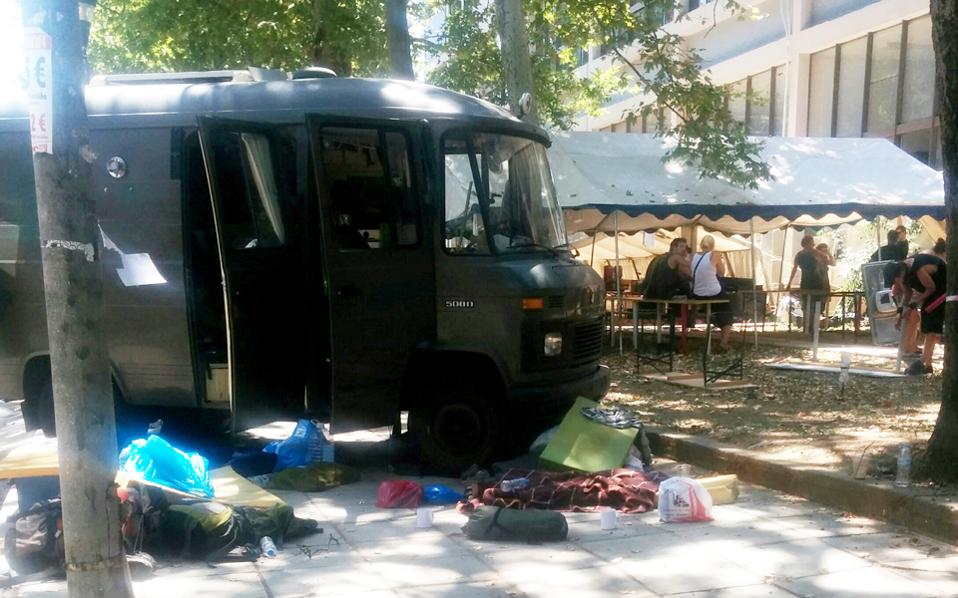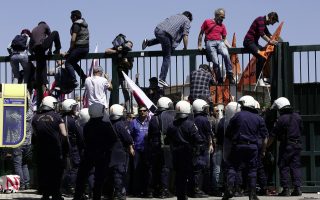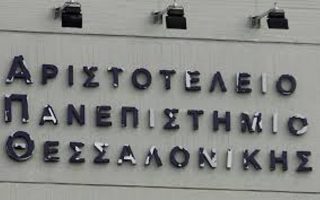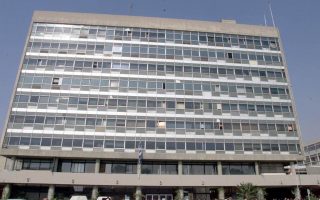Prosecutors probe sit-ins at Aristotle University

Prosecutors on Friday launched investigations into whether anyone should face criminal charges in connection with sit-ins at two faculties of Thessaloniki’s Aristotle University by supporters of the so-called No Border Camp pro-refugee movement.
After occupying the law faculty on Thursday, activists moved into the premises of the philosophy faculty on Friday, as the university’s management expressed concerns that the theology faculty would be next.
On Friday morning a group of around 40 people, all believed to be Greek, asked university guards to open the doors to the philosophy faculty.
When the guards responded that they had no orders to grant them access to the department, the activists broke the locks and stormed the premises, where they set up tents and put a banner with information about an upcoming “anarchist meeting” in the philosophy faculty.
The dean of the faculty, Dimitris Mavroskoufis, told Kathimerini that he hoped the occupants would display respect while on the site and not cause any damage.
He appeared particularly concerned about a museum of masks on the site as well as computer equipment and books.
By late Friday night, two investigations launched by different prosecutors into the sit-ins at the two faculties had not led to charges being brought against anyone.
Meanwhile, according to sources, government officials asked the university’s administrators to try to avoid any escalation of tensions at the site.
Scores of activists from Greece, as well as Italy, Germany and the Netherlands, have arrived on the university grounds over the past couple of days.
According to university sources, the crowd is expected to swell to 2,000 over the weekend, when concerts are to be staged on a bandstand erected by activists on the campus.
There are fears that activists may try to visit makeshift reception centers for refugees in the broader region and cause disturbances as had happened in Idomeni, northern Greece, earlier this year.
Authorities in Thessaloniki, as well as the university’s administration, are keen to avert a repeat of riots that broke out during anti-globalization protests in the city in 2003.
Thousands of foreign activists had descended on Thessaloniki then, too, and the protests resulted in widespread damage.





